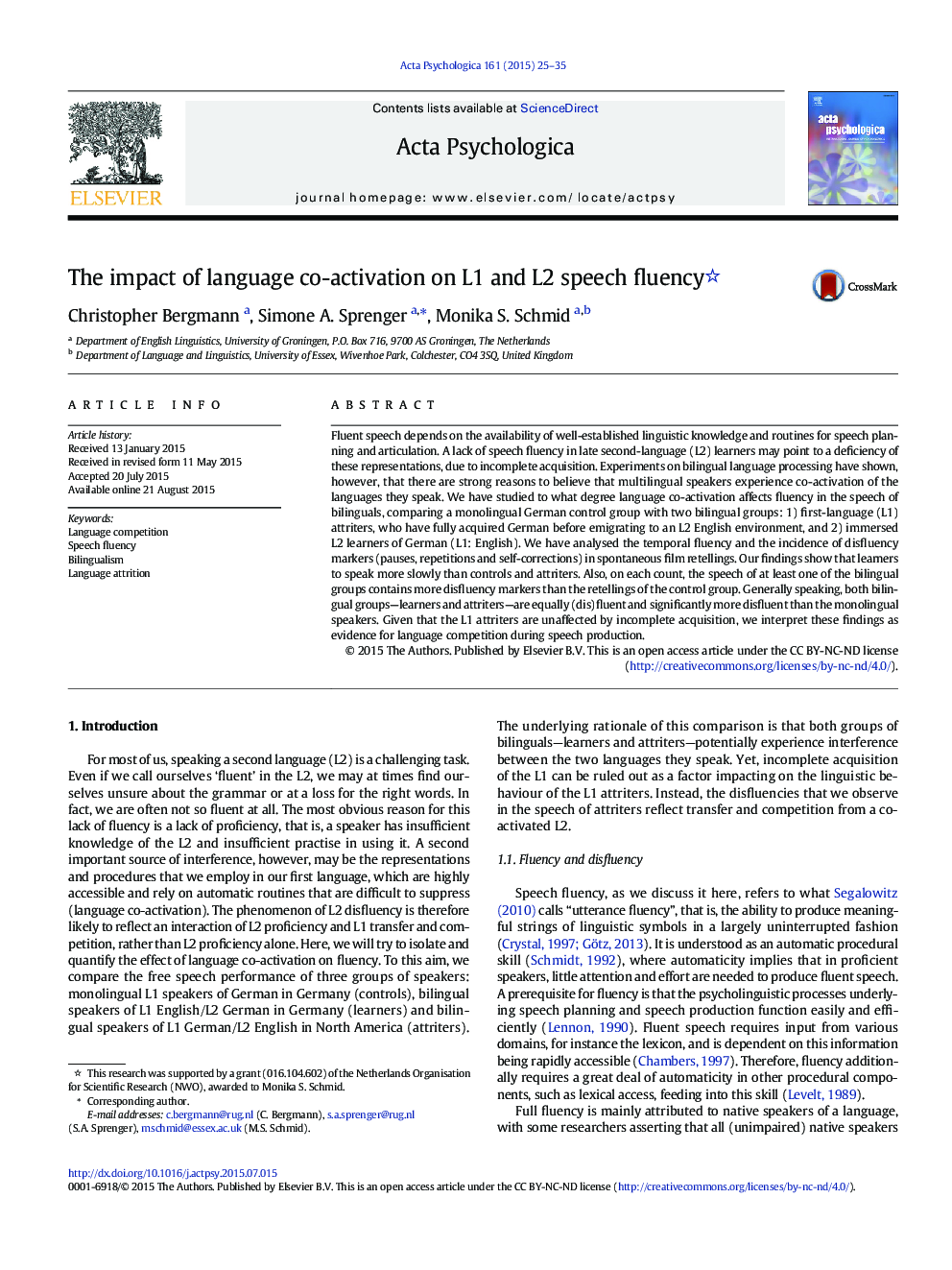| Article ID | Journal | Published Year | Pages | File Type |
|---|---|---|---|---|
| 7277208 | Acta Psychologica | 2015 | 11 Pages |
Abstract
Fluent speech depends on the availability of well-established linguistic knowledge and routines for speech planning and articulation. A lack of speech fluency in late second-language (L2) learners may point to a deficiency of these representations, due to incomplete acquisition. Experiments on bilingual language processing have shown, however, that there are strong reasons to believe that multilingual speakers experience co-activation of the languages they speak. We have studied to what degree language co-activation affects fluency in the speech of bilinguals, comparing a monolingual German control group with two bilingual groups: 1) first-language (L1) attriters, who have fully acquired German before emigrating to an L2 English environment, and 2) immersed L2 learners of German (L1: English). We have analysed the temporal fluency and the incidence of disfluency markers (pauses, repetitions and self-corrections) in spontaneous film retellings. Our findings show that learners to speak more slowly than controls and attriters. Also, on each count, the speech of at least one of the bilingual groups contains more disfluency markers than the retellings of the control group. Generally speaking, both bilingual groups-learners and attriters-are equally (dis)fluent and significantly more disfluent than the monolingual speakers. Given that the L1 attriters are unaffected by incomplete acquisition, we interpret these findings as evidence for language competition during speech production.
Related Topics
Life Sciences
Neuroscience
Cognitive Neuroscience
Authors
Christopher Bergmann, Simone A. Sprenger, Monika S. Schmid,
